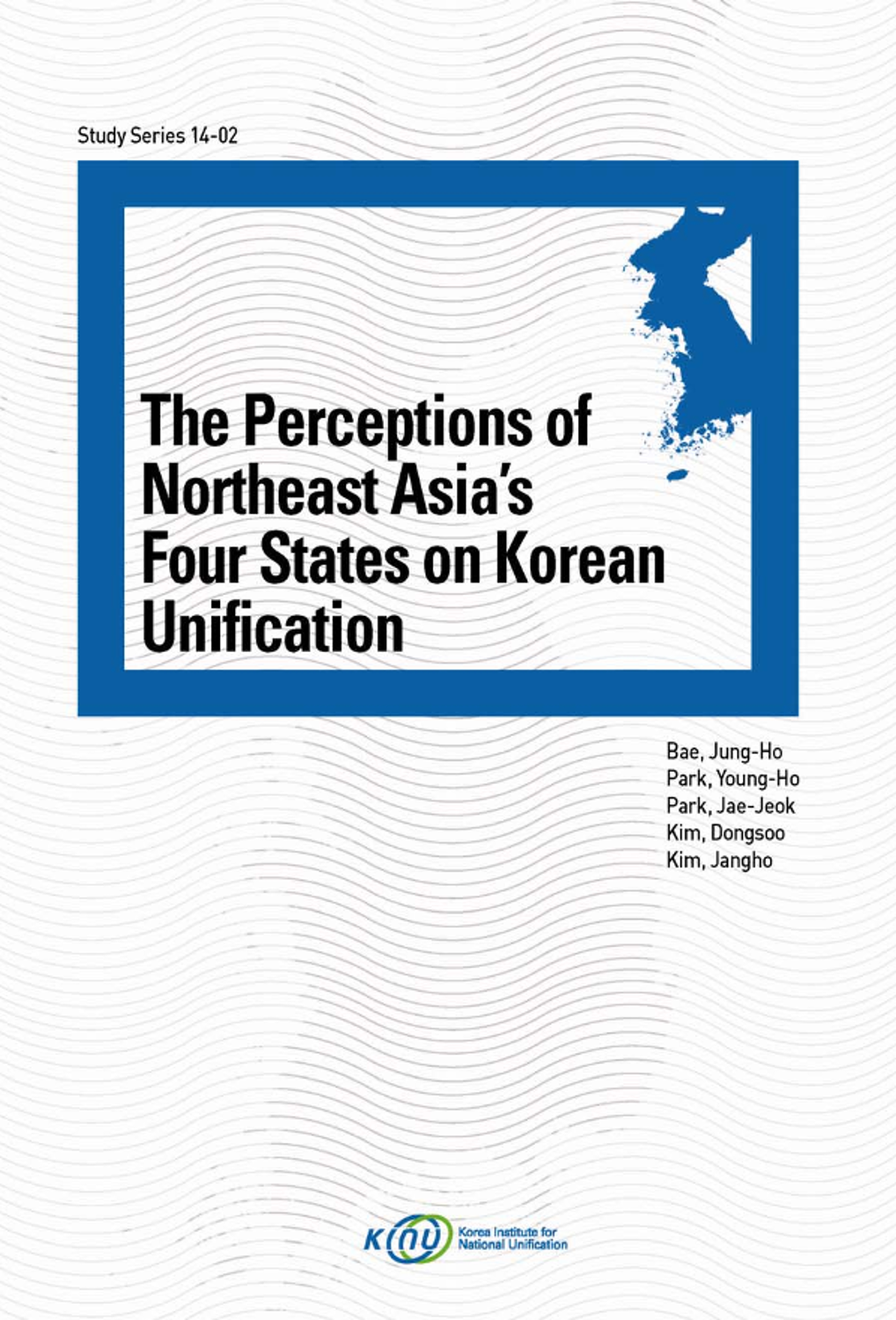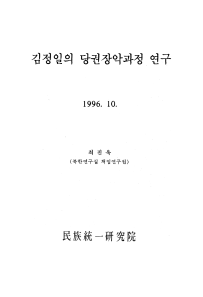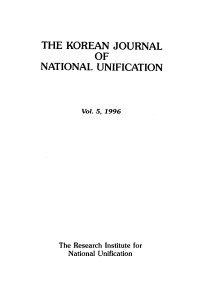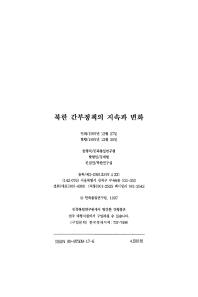
연구원발간물Study Series 2014-02
The Perceptions of Northeast Asia’s Four States on Korean Unification
- 발행사항
- Seoul : Korea Institute for National Unification, 2014
- 형태사항
- 54 p. ; 23cm
- 총서사항
- Study Series
- ISBN
- 9788984797611
- 청구기호
- 000 SS14-02
소장정보
| 위치 | 등록번호 | 청구기호 / 출력 | 상태 | 반납예정일 |
|---|---|---|---|---|
이용 가능 (2) | ||||
| 1자료실 | G0015248 | 대출가능 | - | |
| 1자료실 | G0015249 | 대출가능 | - | |
이용 가능 (2)
- 등록번호
- G0015248
- 상태/반납예정일
- 대출가능
- -
- 위치/청구기호(출력)
- 1자료실
- 등록번호
- G0015249
- 상태/반납예정일
- 대출가능
- -
- 위치/청구기호(출력)
- 1자료실
책 소개
This paper analyzes the perceptions of the United States (U.S.), China, Japan, and Russia on the issues of the division of the Korean Peninsula and a South Korea-led unification based on a survey conducted on experts in the respective countries. Each country’s five experts on the Korean Peninsula (total of 20 experts) presented their in-depth views on a list of eight questions including (1) the costs and benefits of the division as well as unification, (2) the international community’s efforts for unification, and (3) the value of a unified Korea. In order to compile a balanced view, the authors of this paper have taken into consideration the affiliation, age, political tendency, etc when selecting the experts.......
목차
1. Korean Peninsula at a Crossroad and the Importance of Unification Diplomacy
2. The U.S. Position on a Divided Peninsula and Unification
A. Costs and benefits of Korean division/unification
B. Cooperation for Korean unification
C. Views on a unified Korea’s values and its desirable future
3. China’s Position on a Divided Peninsula and Unification
A. Costs and benefits of Korean division/unification
B. Cooperation for Korean unification
C. Views on a unified Korea’s values and its desirable future
4. Japan’s Position on a Divided Peninsula and Unification
A. Costs and benefits of Korean division/unification
B. Cooperation for Korean unification
C. Views on a unified Korea’s values and its desirable future
5. Russia’s Position on a Divided Peninsula and Unification
A. Costs and benefits of Korean division/unification
B. Cooperation for Korean unification
C. Views on a unified Korea’s values and its desirable future




